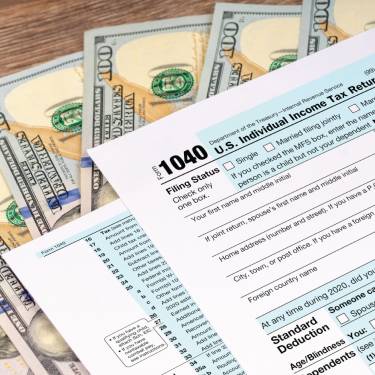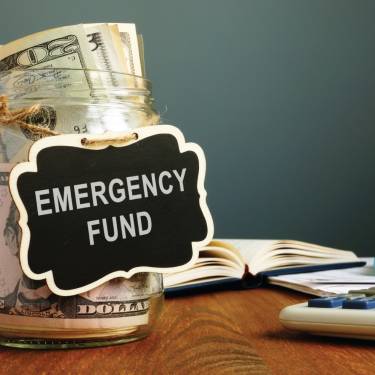Three Smart Ways to Spend Your Tax Refund

The IRS estimates that the average tax refund this year will be around $3,000, down 11% from last year due to the expiration of some pandemic relief benefits and 2021 tax breaks. Though lower than last year, $3,000 is still a significant sum that can provide a boost to your budget. If you’re one of the millions of tax filers looking forward to a refund, consider a few options to spend that extra money wisely.

1) Start or add to your emergency fund.
No matter your age or life stage, everyone should aim to save for emergencies. Having a clear picture of your income and expenses is a key first step to figuring out the amount that you need. A couple of approaches to building an emergency fund include 1) setting aside three to six months of income or 2) saving for at least six months of expenses. While it can be challenging to start, anything you save — whether it’s $50 or $500 each month — will add up, and your refund can help you reach that goal faster. This emergency cushion can help you weather a setback like unexpected large expenses, divorce, or illness.

2) Pay off credit cards or other high-interest debt.
A recent Bankrate survey
shows that 45% of tax filers in the U.S. expect a refund this year, and nearly one in three (28%) of them will make the smart choice to use their refund to tackle debt. Interest and fees can add up and significantly increase the total amount you pay back. For example, a debt of $5,000 with a 15.99% interest rate to be paid over two years can end up costing you an additional $800 or more in interest expense. Paying it down with a lump sum — like a tax refund — will reduce that interest significantly. Focus on paying off debt with the highest interest rate (typically credit cards) and save on those additional expenses.

3) Contribute to a retirement plan.
Most people intend to save for retirement, but studies show that they don’t save enough to maintain their lifestyle after they’ve stopped working. It’s never too early to start planning, and setting aside money early can have big payoffs later. An IRA Certificate of Deposit (CD) — either traditional (where taxes are deferred until you withdraw at retirement age) or Roth (contributions still count as income and are taxed now and therefore are not taxed at withdrawal) — is one option where you can invest an amount that works for you and watch it grow over time. Though you can’t access or change it for a set term (12-60 months), typically the return rate is higher than a regular savings account. Another option is making a contribution to your 401k.
For additional resources on how to save, budget, pay off debt, and more, visit Metro's Financial Wellness and Education Center.
Additional Resources:
https://advice.metrocu.org/credit-and-debt/debt/tools/use-a-lump-sum-to-pay-off-debt
https://advice.metrocu.org/retirement-planning/saving/tools/save-for-retirement




